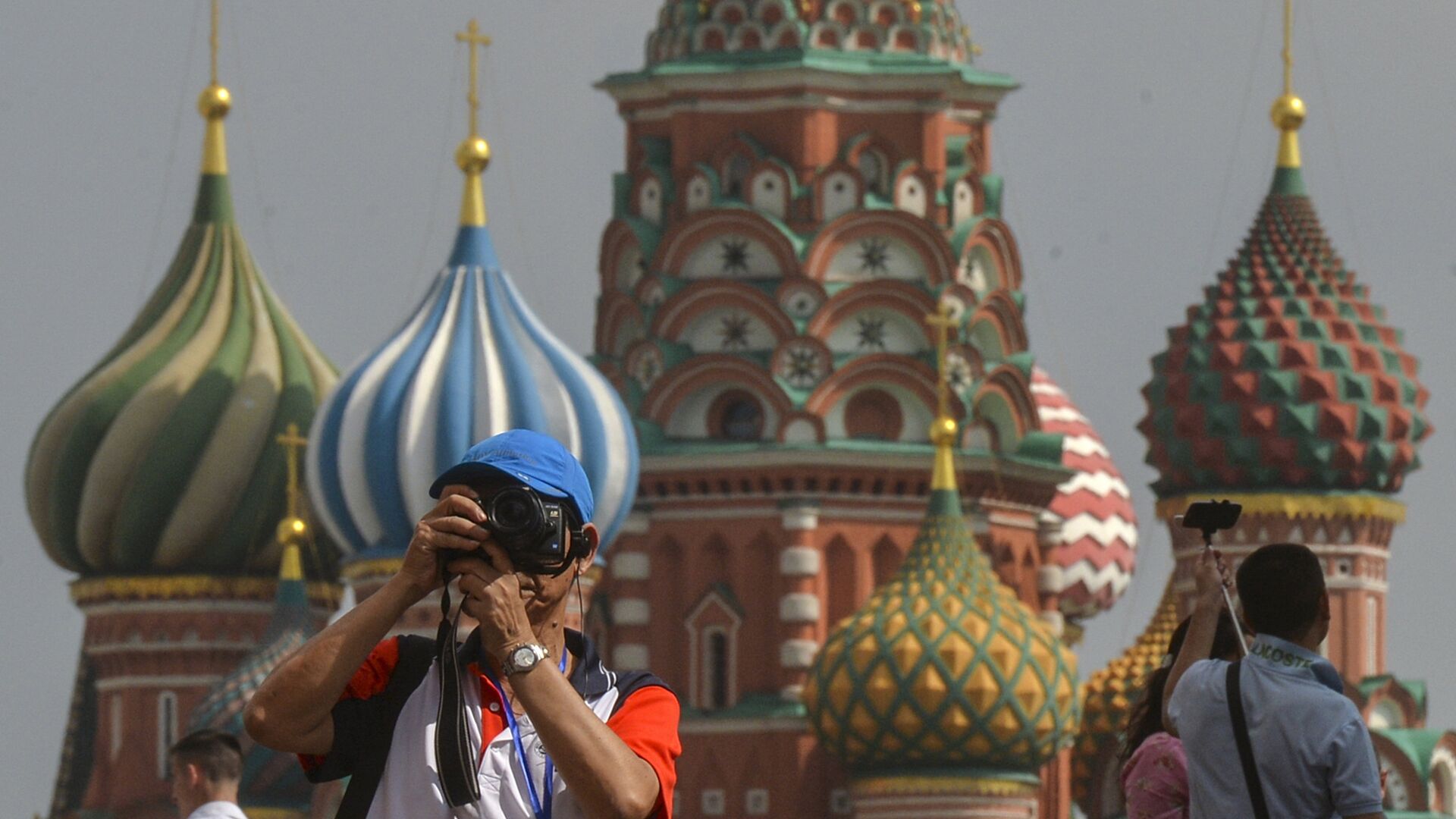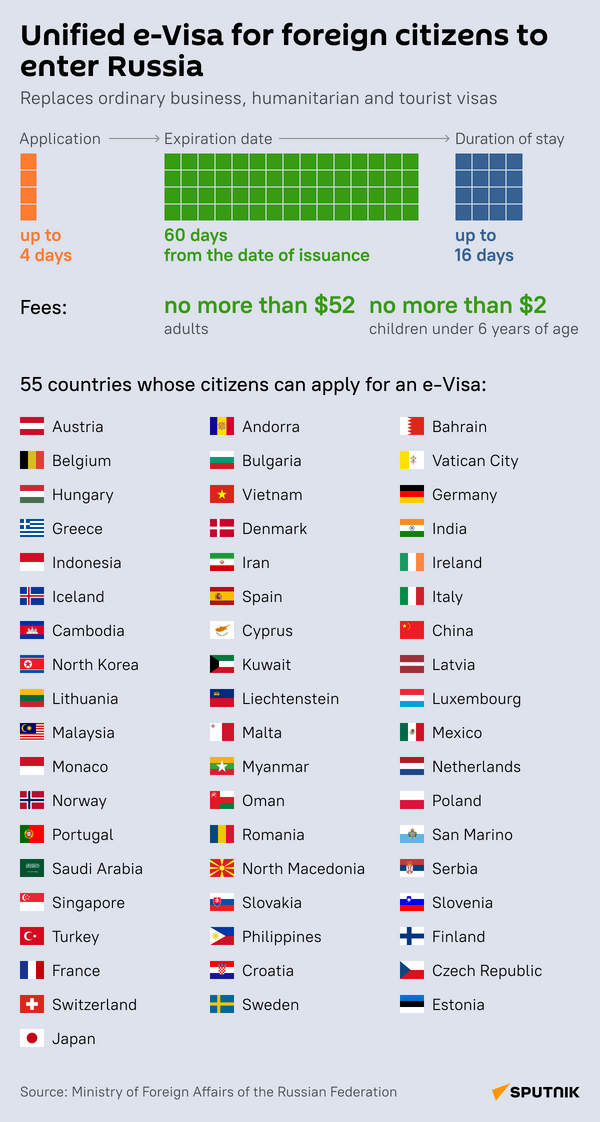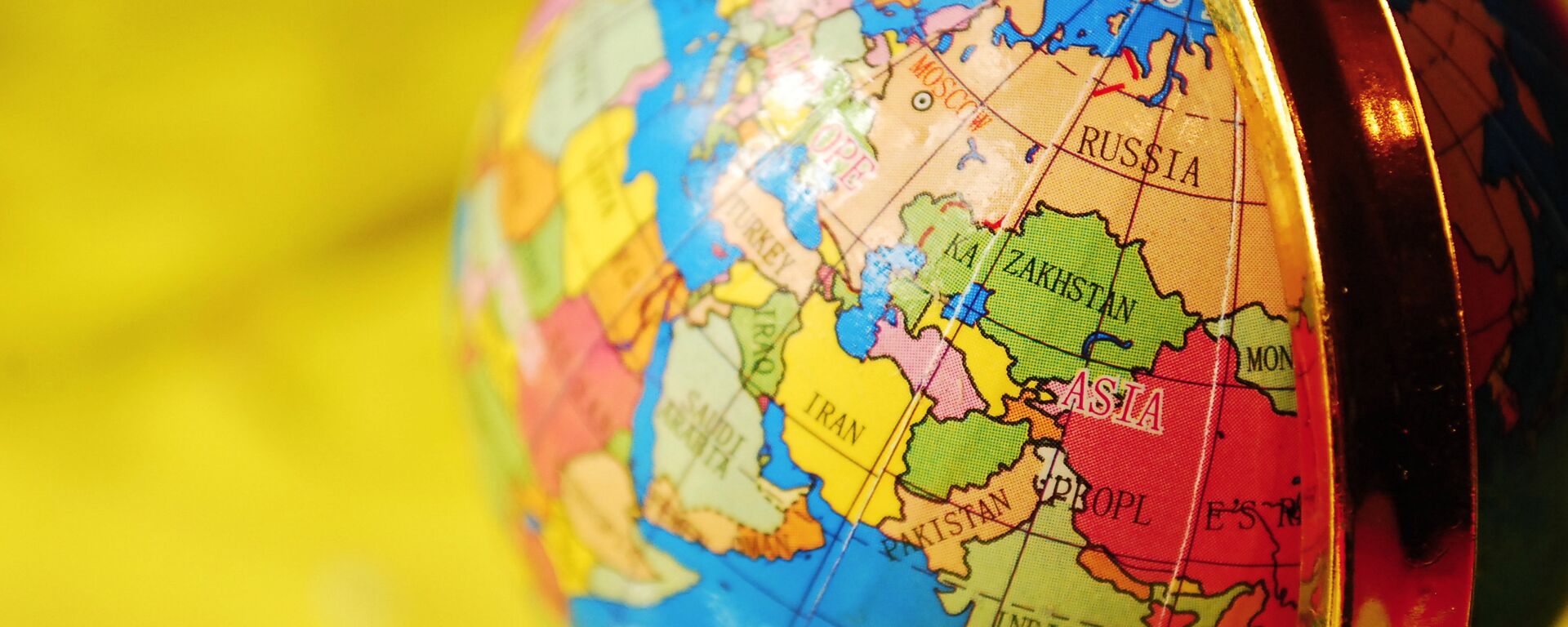Do I Need a Visa to Visit Russia?
15:38 GMT 02.08.2023 (Updated: 15:39 GMT 02.08.2023)

© Sputnik / Eugene Odinokov
/ Subscribe
Russia continues to attract people from different parts of the world who flock to the country for tourism, education, business, and other activities, despite the skewed narratives pushed by the West to isolate Moscow – which has doubled down amid NATO's proxy war in Ukraine.
Currently, the Russian Federation has bilateral visa-free agreements with several countries whose nationals are visa-exempt or can apply for an e-visa.
But which countries enjoy visa-free status with Russia, and who can apply for a Russian electronic visa? Sputnik explains.
Russia’s visa policy includes regulations, rules, and laws that guide a foreigner on their eligibility concerning how to apply for a Russian visa. It also provides a list of documents needed for a visa application.
Visa-Waiver Agreements
China and Russia kick-started a visa-free tour group exchange on August 1 under the auspices of a joint accord between the two nations. Additionally, a bilateral visa-exempt group tour is in the works between Iran and Russia. Countries grant visa exemptions following reciprocity or multilaterally. Russians enjoy visa exemptions based on such agreements with various nations.
When planning a trip to Russia, you should consider the applicable visa options. The first is by visiting the nearest embassy or consulate. The second option is to apply for an e-visa.
Russia's Unified E-Visa Launch
The Russian Ministry of Foreign Affairs Consular Department made public their implementation of a new electronic visa applicable to a select number of countries. This permits passport holders from such to come into Russia for purposes like visits, business trips, tourism, sports, economic, cultural, scientific, and socio-political events.
Once registered, the unified e-visa (single entry) is valid for 60 days from the date of issuance. Still, travelers can enter or exit the Russian territory through designated crossing points and stay in the country for a maximum of 16 days from the entry date. According to the ministry, the application for a Russian electronic visa is available to nationals of 55 nations.


Which Countries are Eligible for Russia's e-Visa?
Below is a list of countries whose nationals can apply for e-visas:
Asia
Cambodia, China, India, Indonesia, Japan, the Democratic People's Republic of Korea, Malaysia, Myanmar, the Philippines, Singapore, Taiwan (China), and Vietnam.
Europe
Andorra, Austria, Belgium, Bulgaria, Croatia, Cyprus, Czech Republic, Denmark, Estonia, Finland, France, Germany, Greece, Hungary, Iceland, Ireland, Italy, Latvia, Liechtenstein, Lithuania, Luxembourg, Malta, Monaco, Netherlands, North Macedonia, Norway, Poland, Portugal, Romania, San Marino, Serbia, Slovakia, Slovenia, Spain, Sweden, Switzerland, Turkiye, and the Vatican.
Middle East
Bahrain, Iran, Oman, and Saudi Arabia.
North America
Mexico.
How to Apply for the Russian Electronic Visa
Visit the website to fill in the e-visa application form online.
Pay a non-refundable processing fee on the specialized website of Russia’s Ministry of Foreign Affairs or through its mobile application. Note: Applications for children under the age of six do not require a fee.
Ensure that all the information entered on the form is correct - your biodata should match your passport details.
The unified e-visa application is processed within 4 calendar days (including weekends and bank holidays) of submission. Applications are processed by Russia’s diplomatic missions or consular posts as designated by the Foreign Affairs Ministry.
If granted an e-visa, a notification is sent to the applicant's email, which should be printed or downloaded on a mobile device and shown to the airline or transport company en route to Russia. Upon arrival at any of the designated crossing points, present the e-visa to the border service officer.
Countries with Visa-Free Entry to Russia
Only nationals of Belarus and South Ossetia are free to enter Russia without restrictions.
Citizens of Argentina, Armenia, Azerbaijan, Brazil, Belize, Bolivia, Botswana, Costa Rica, Cuba, El Salvador, Fiji, Georgia, Honduras, Israel, Laos, the Maldives, Montenegro, Namibia, Panama, Paraguay, Qatar, South Africa, South Korea, the United Arab Emirates, Vanuatu, Venezuela, and other nations can enter Russia without a visa, as long as their visit complies with the visa waiver restriction of staying at most 90 days within any 180-day interval.
Foreign tourists arriving by regular ferry through various ports have had the option to stay in Russia visa-free for a maximum of 72 hours since May 2009, given they spend the night on board or in accommodations authorized by the travel agency.
Russian visa requirements are waived for crew members of airlines, as well as sea, river, and rail crews under the condition of a bilateral agreement between their governments and the Russian authorities.
Is a Russian Visa Hard to Get?
Individuals from more than 135 countries are obligated to apply for an embassy visa to enter Russia, regardless of the intended duration or nature of their visit. Russian embassies or consulates typically issue the following visa categories:
Diplomatic visa - for a foreign national who holds a diplomatic passport.
Service visa - for a citizen of another country who is part of an official delegation, a family member of such individual accompanying them, embassy staff, military attaches, etc.
Ordinary visa - mainly issued based on the applicant's purpose of travel or entry to Russia. This visa category is divided into private, business, tourist, student, work, humanitarian, and ordinary entry visas.
Transit visa - granted to a foreigner for up to 10 days for transit via Russian territory.
The first three types of visa can be for single, double, or multiple entries - according to the number visits.
However, obtaining a visa to Russia is relatively easy. Here’s how to apply for a Russian visa:
The applicant’s passport expiration must be at least 18 months or more from the intended date of application and should have a few blank pages.
Consult or visit the embassy website in your country in advance to be fully acquainted with all the necessary documents, processes, and consular fees beforehand.
Generally, applying for a Russian visa requires the applicant to obtain an invitation letter (from the inviting entity or individual) before application, especially for private, business, tourist, student, work, and humanitarian visas.
Carefully fill out the Russian visa application form (usually obtained from the embassy website), stick on the prescribed photo format, and sign.
The standard processing period for a Russian visa is typically less than two weeks. If you need your visa urgently, you can opt for the express service with a shorter processing period of two to three days. The embassy aims to improve the visa processing period to expedite applicants' travel plans. Visa fees reflect the applicant's preferred processing time, and may vary depending on the type of visa.
Which Airlines Fly to Russia?
Currently, 38 foreign airlines from some 26 nations operate international flights to the Russian Federation. These include:
Aero Nomad Airlines (Kyrgyz Republic)
Air Algerie (Algeria)
Air Arabia (UАЕ)
Air China (China)
Air Serbia (Serbia)
AlMasria Universal Airlines (Egypt)
AnadoluJet (Turkiye)
Ariana Afghan Airlines (Afghanistan)
Avia Air Traffic (Kyrgyzstan)
Azal (Azerbaijan)
Belavia (Belarus)
Buta Airways (Azerbaijan)
Conviasa (Venezuela)
Cham Wings (Syria)
EgyptAir (Egypt)
El Al Israel Airlines (Israel)
Emirates Airlines (UАЕ)
Etihad Airways (UАЕ),
Ethiopian Airlines (Ethiopia)
Jazeera Airways (Kuwait)
FlyDubai (UАЕ)
Flyone Armenia (Armenia)
Gulf Air (Bahrain)
Iraqi Airways (Iraq)
Mahan Air (Iran)
Mongolian Airlines (Mongolia)
Nouvelair (Tunisia)
Pegasus Airlines (Turkiye)
SCAT (Kazakhstan)
Southwind (Turkiye)
SriLankan Airlines (Sri Lanka)
Somon Air (Tajikistan)
Qatar Airways (Qatar)
Qazaq (Kazakhstan)
Qanot Sharq (Uzbekistan)
Royal Jordanian (Jordan)
Turkish Airlines (Turkiye)
Uzbekistan Airways (Uzbekistan)


